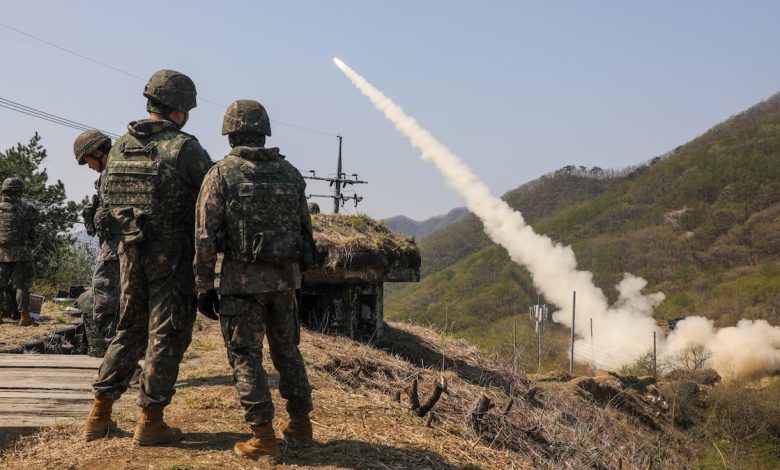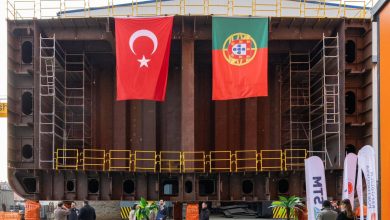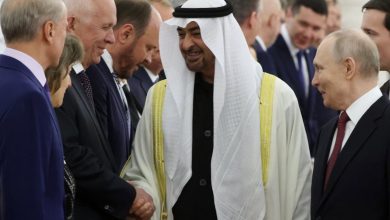South Korea’s nuclear debate is no longer taboo

South Korea has long been held up as a model supporter of the global non-proliferation regime, trusting the American “nuclear umbrella” to keep the peace on the peninsula. But the strategic environment around Seoul has changed dramatically. North Korea now boasts a larger, more sophisticated nuclear and missile arsenal. At the same time, confidence in U.S.-extended deterrence has eroded amid American political polarization and doubts about Washington’s willingness to risk its own cities for an ally.
The result is something once unthinkable: a serious national debate over whether South Korea needs its own nuclear weapons. This is no longer a fringe idea. It is a mainstream conversation crossing generational, elite and partisan lines.
But while the question is understandable, the answer still isn’t a South Korean bomb.
North Korea’s threat and America’s uncertainty
The core trigger for Seoul’s reassessment is Pyongyang’s rapid weapons development. North Korea now fields short-range ballistic missiles that are mobile, hard to detect and capable of evading missile defense. Kim Jong Un has openly embraced a doctrine that allows early nuclear use if the regime feels threatened. That raises the risk of miscalculation in any crisis.
At the same time, South Koreans increasingly doubt whether Washington would actually use nuclear weapons on their behalf if doing so invited retaliation on the U.S. homeland. No amount of official reassurance fully resolves that fear.
Given this strategic mix, South Koreans naturally ask: How long can we rely entirely on another country’s nuclear trigger?
Seoul’s current deterrence playbook has limits
South Korea’s conventional strategy — the so-called Three-Axis System — aims to counter North Korea without going nuclear. The Kill Chain concept focuses on preemptive strikes if an attack looks imminent. The Korea Air and Missile Defense system provides layered missile defense, while the Korea Massive Punishment and Retaliation system threatens devastating retaliation, including leadership decapitation, if North Korea attacks first.
These are strong components of deterrence, but none can fully solve the nuclear imbalance. Preemption depends on flawless intelligence. Missile defense can be overwhelmed by volume or advanced maneuvering systems. And threatening regime destruction risks triggering the rapid escalation Seoul hopes to avoid.
In other words, South Korea’s conventional posture is capable, but not invulnerable — which fuels the conversation about nuclear “insurance.”
South Korea is already close to the threshold
Technologically, Seoul could develop nuclear weapons relatively quickly. Its advanced nuclear industry and delivery systems give it what experts call “nuclear latency” — the ability to build a bomb quickly if it chooses.
But the legal and political constraints are heavy. The U.S.-Republic of Korea civil nuclear agreement prohibits South Korea from reprocessing or enriching. Washington is unlikely to allow changes, even for its closest allies. And the moment Seoul moves toward a bomb, it risks international isolation and severe economic fallout.
So the real issue isn’t capability — it’s cost.
Why the nuclear option remains a losing bet
Supporters of a South Korean bomb argue that only independent nuclear weapons can guarantee national survival. They also claim it would deter not only North Korea, but also China and Russia.
But there are three hard truths:
- It would fracture the U.S. alliance. A South Korean bomb would trigger a crisis in the relationship with Washington — the same relationship that underpins all of Seoul’s military and economic security.
- The economic damage would be severe. Sanctions, investor flight and probable Chinese retaliation would hit an export-driven South Korean economy with enormous force. The cost would dwarf the perceived security gain.
- It could trigger a regional arms race. If South Korea goes nuclear, Japan may follow. Taiwan could feel pressure to do the same. A nuclear cascade in Northeast Asia is not stability — it’s volatility.
And crucially, nuclear weapons wouldn’t solve Seoul’s biggest practical vulnerability: the North’s massive conventional and chemical-biological forces. A bomb would change psychology more than reality.
The smarter path: Fix deterrence, not the Nuclear Non-Proliferation Treaty.
Nuclear weapons deter existential threats, but they don’t prevent crises — and they certainly can’t guarantee peace. The core task for South Korea is making sure North Korea never believes it can win a quick, cheap war.
That requires tightening the existing alliance framework by addressing the following:
- More integrated planning with the U.S.
- Beefed-up intelligence and cyber capabilities
- Clearer extended-deterrence commitments
- Stronger societal resilience
Seoul also benefits from maintaining technological flexibility — enough capacity to remind adversaries that pushing South Korea too far could backfire, but without crossing the line into weaponization.
This dual approach strengthens deterrence without blowing up the alliance or the global non-proliferation system.
Bottom line
South Korea’s nuclear debate is no longer theoretical, and it shouldn’t be dismissed. North Korea’s arsenal is real, and U.S. politics are unpredictable. Seoul is right to reassess its options.
But developing nuclear weapons would impose catastrophic strategic and economic costs while solving few of the country’s actual defense problems.
The surest path to long-term security is not a South Korean bomb — it’s a stronger, clearer and more resilient U.S.-Republic of Korea alliance backed by credible conventional deterrence and smart hedging.
Zdeněk Rod serves as an assistant professor at the Department of Security Studies at CEVRO University in Prague. He is also the head of research at the CEVRO Center for Asia-Pacific Studies, in addition to an assistant professor at the Faculty of International Relations at the Prague University of Economics and Business.







